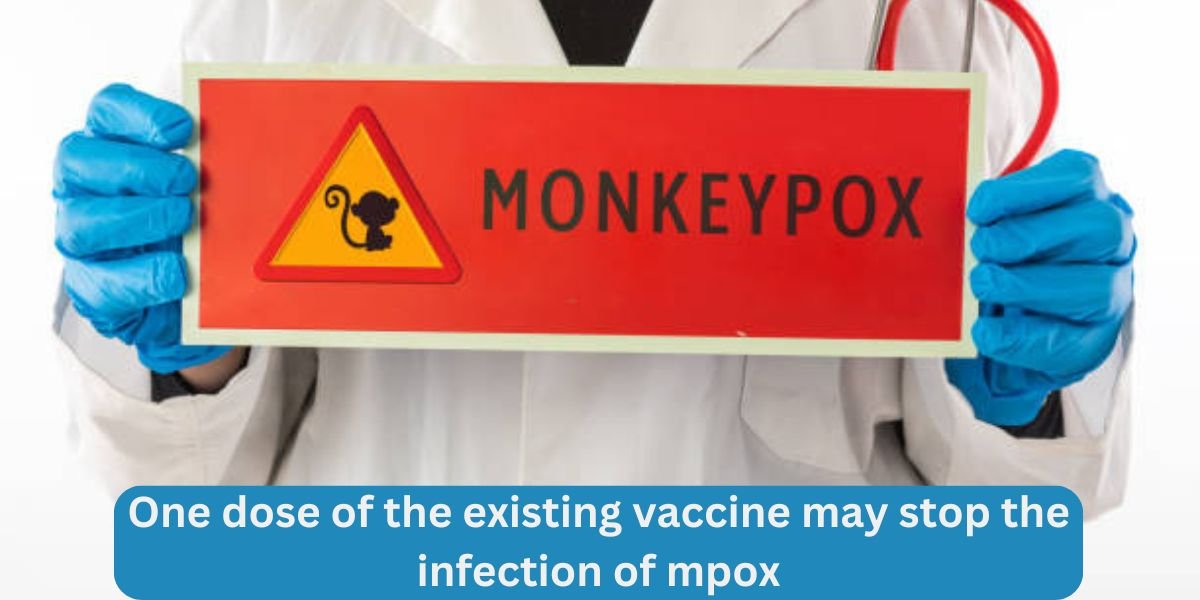A recent study reveals that a single dose of an existing vaccination can prevent the viral infection known as mpox, formerly known as monkeypox.
The World Health Organization first proclaimed the worldwide mpox outbreak to be a public health emergency of international concern in July 2022, and this revelation may help halt the spread of the pandemic.
The WHO stated at the time that specific administration of second- or third-generation smallpox vaccines could be helpful, but since then, there hasn’t been much information available regarding the efficacy of this strategy in clinical or real-world settings. A vaccination can prevent smallpox, a virus that is linked to mpox.
The discovery that an existing vaccine may be effective at preventing mpox is fantastic news because developing new drugs and vaccines can require time and money that could be used for their introduction.
Following the WHO release, observational studies have indicated that the efficacy of the modified vaccinia Ankara-Bavarian Nordic (MVA-BN) vaccine for preventing mpox could range from 36 to 86 percent.
The researchers of the current study, who were led by Public Health Ontario and University of Toronto public health physician Christine Navarro, admit that bias can skew observational data and produce conclusions that are unreliable or misleading.
However, observational findings—where a study uses an already-existing intervention to test a hypothesis—can provide much-needed answers fast in this critical scenario, where mpox cases are once again on the rise globally and “the most dangerous” strain is spreading throughout Africa.
Therefore, the researchers used an analysis of observational data to apply the design principles of randomized trials, the gold standard for determining the efficacy of drugs. Target trial emulation is a strategy that minimizes biases in the estimation of a vaccine’s causal effect.
The 3,204 men from Ontario, Canada, who were vaccinated with MVA-BN for the study had only had one dose before being exposed to mpox, which was believed to have arrived in Ontario somewhere between June 2022 and November 2022.
For contrast, this group was matched with 3,204 men who had not gotten the immunization. In the event that any guy in this group received a vaccination during the study period, another man who had not received a vaccination was added. This ensured that no one was excluded from receiving a vaccination; instead, the men who were “in the queue” were studied as controls.
51 cases of mpox infections were identified during the course of the study; 21 of these cases were found in the immunized group and 50 in the unvaccinated group.
This results in a 58 percent estimated effectiveness of the vaccine for a single dosage.
Additionally, they discovered that MVA-BN was not linked to a lower incidence of mpox infection in the first 14 days following vaccination, most likely because the body did not have enough time to mount a sufficient immune response.
And while it makes sense that a vaccination would take some time to put things into effect, this discovery provides more evidence that the vaccine is the precise reason why the vaccinated cohort has fewer mpox infections.
The authors note that while MVA-BN is approved in Canada as a two-dose series administered 28 days apart, Ontario initially implemented a dose-sparing strategy, allowing vaccine recipients to receive only one dose due to concerns about limited vaccine supply.
At the end of September 2022, Ontario launched a two-dose program; however, not enough individuals had received the second dose for the researchers to evaluate its efficacy in the current investigation.
The scientists state that their findings further support the effectiveness of MVA-BN in preventing mpox infection and emphasize that it should be made available and accessible to at-risk communities.
The British Medical Journal published this research.










